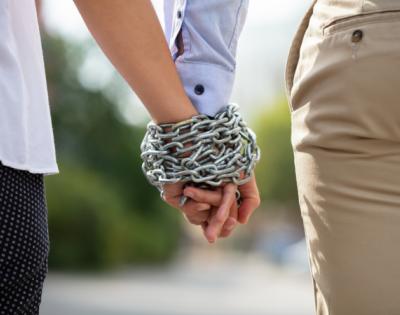
Try to envision all of the relationships you have in your life – your relationship with your parents, your spouse, your children, or your best friend. Do any stick out to you? Would you classify any or all of these relationships as being fulfilling and mutually beneficial, or would you classify them as one-sided and controlling? If the latter option sounds more familiar, your relationships may have codependency issues.
Codependency is a behavior that can be passed down from generation to generation, and it affects a person’s ability to have a healthy and rewarding relationship. To put it simply, codependency is when a person is dependent on validation from others to satisfy their need for confidence and self-acceptance.
Where do codependency issues commonly arise?
- Relationships where there is a family member or loved one facing drug, alcohol, or gambling addiction
- Relationships that have physical, verbal, emotional, or sexual abuse
- Relationships in which there is a family member or loved one living with a mental or physical illness
A person living with codependency issues has typically experienced abusive or unhealthy relationships in the past, and they yearn to be needed and appreciated. Codependent people commonly take on the role of the “fixer” in relationships. A wife may make excuses for her husband struggling with alcoholism; a parent might deny the problem of delinquent behavior from their child; or a boyfriend puts the needs of his partner above his own in order to keep the peace. All of these behaviors are codependent.
What are signs of codependency in relationships?
- You feel responsible for your partner's thoughts, feelings, or actions.
- You avoid conflict and deny and excuse problematic behavior.
- You provide money to support someone else's habits.
- You worry and carry the burden of another’s problems.
- Your relationship is based out of need instead of mutual respect.
- You protect others from reaping the consequences of their own poor choices.
- You try to solve other people’s problems before handling your own.
- You feel guilty for asserting yourself, or you fear that asserting yourself will lead to conflict or greater abuse.
What now?
If the signs of codependency resonate with you and your relationships, it’s important to know that you are not alone. There is hope, and one way you can start to heal is by learning more about codependency and how it’s affected you, your life, and your relationships. One way to do that is by reaching out to a professional counselor, therapist, or social worker about your situation. They will have the resources and background necessary to help educate you about codependency, and they will have insight as to how you can break codependent behaviors and move forward in having healthier connections with others.
If you feel like you could benefit from speaking with a trusted and judgment-free provider about your relationships or past experiences, contact us online or call today at 1-800-627-8220. You don’t have to go it alone.
Information in this article provided by Mental Health America.




